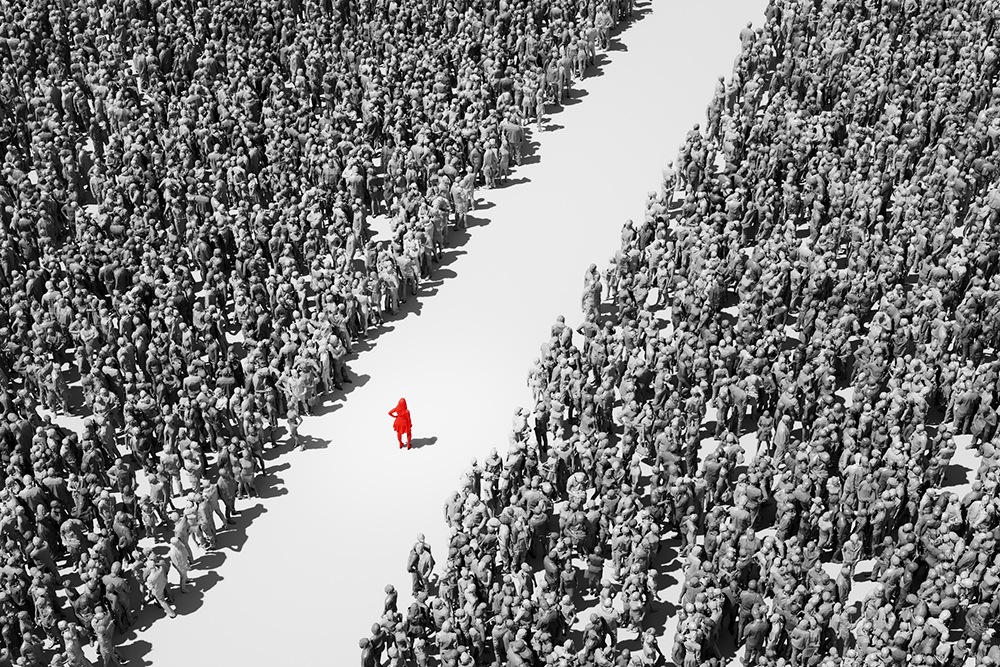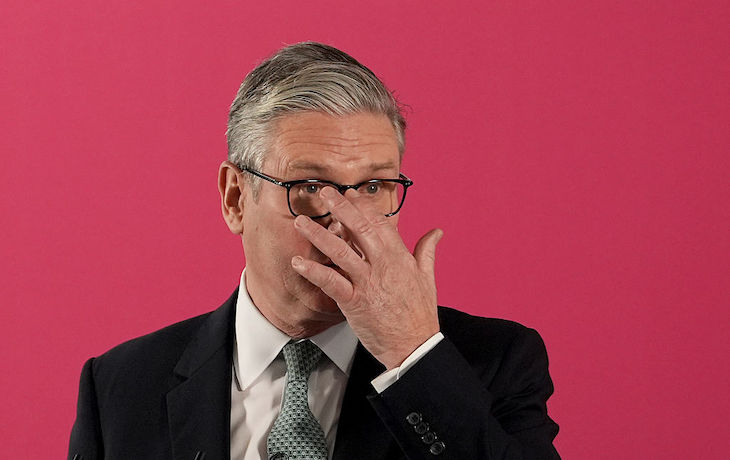
When was the last time you had a truly classic racist cab driver? Mine was a few years ago, coming out of Victoria Station. On the drive to my home in Camden, Classic Racist Cab Driver had a go at all the normal targets. I sat in the back, wearily trying to screen it out, as you do. The trouble kicked in when he ran out of obvious people to be bigoted about. In desperation, he moved on to Belgians, and then on to scorning ‘anyone who takes trains’ (forgetting, or perhaps recalling, that he’d picked me up at Victoria Station).
Sometimes I wonder if he is still out there, cruising down Park Lane frothing about Kazakhs or people who eat biscuits, but if he is I have bad news for him. His days are numbered. Because some startling data has emerged from an analysis of San Francisco transport services. It shows that people are not just happy to take driverless cabs (which are run by Waymo in San Fran) – they will actually pay 50 per cent more and wait considerably longer for a driverless cab, in preference to a cab with a human at the wheel. Far from being petrified of it ploughing into the Pacific, people will wait for the weird and expensive droid-car.
Several explanations have been advanced for this. Perhaps these cars have novelty value, or tend to be nicer vehicles – but these cars have now been around a while (millions of journeys have been taken) and you can get nice Ubers (e.g. Uber Luxe) if you want. So we must look for different explanations.
Firstly, driverless cars are safer. Not only are they more sensible and cautious on the road – there is no chance of the driver being drunk, looking at his phone, arguing with a cyclist, or indeed assaulting or abusing you, the passenger.
Then there’s the privacy, which is also a major motivation. With no one else in the car, you can change your clothes, crepitate loudly, get it on with your sexy co-passenger, vape magic mushrooms, or lie back drooling and drunk. No one is going to judge you. The robot picks you up and drops you off. No human interaction takes place.
Here, I think, is a significant, wider lesson. The speedy advance of technology, from AI to robotics, is amplifying a tendency which was already evident. I’m talking about the Great Introspection. The way humans are antisocially avoiding human interaction wherever and whenever possible. This trend was identified as long ago as 2000, when the political scientist Robert Putnam published Bowling Alone, which was all about the atomisation of Americans.
Since then, the solitude has intensified. Here are a few examples: recent research reveals that 22 per cent of Brits say their social circle has become smaller in the last three years. Nearly half of all Britons now socialise with family and friends just once a month – or even less frequently. The proportion of adults volunteering for a group or organisation at least once a month has fallen from 27 per cent in 2013 to just 16 per cent last year. Corroborating this, a 2025 survey found that one in ten British adults (11 per cent of men and 10 per cent of women) reports having no close friends whatsoever.
Ditto America. In the United States the percentage of adults who say they have no close friends has quadrupled from 3 per cent in 1990 to 12 per cent in 2021. Conversely, the share of those with a large social circle of ten or more close friends has collapsed, falling from 33 per cent to just 13 per cent over the same period. And a third of men under 25 admit having no sex in the past year, which is not a recipe for overall social harmony.
The Triumph of the Shy is not restricted to the Anglosphere. France, Switzerland and the Netherlands show similar trends. South Korea is particularly bad – so bad the government actively aims for urban design that will be ‘less lonesome’. Japan has a special name for men who stay pathologically alone in their apartments: hikikomori. Unsurprisingly, East Asia is leading the way in childlessness, with the West not far behind.
Why is this happening? Clearly the march of technology, from the attention-sapping vortex that is the smartphone to the advent of friendly, sexy, non-judgy chatbots, is accelerating the process. But as Putnam’s 2000 book showed, this asocial evolution began long before we’d even heard of the iPhone or ChatGPT. And recall that as far back as 1944 Sartre said ‘l’enfer c’est les autres’ – and he wasn’t just talking about Luton.
Perhaps there is a deep streak of misanthropy in human nature, and the idea that we are necessarily social animals is a polite fiction. For all our good intentions to go out and meet people, ultimately we may prefer to be alone, perhaps with a consoling machine in our pocket. The Triumph of the Shy was inevitable, and my racist cab driver, in hating basically everyone, was just a brave if unhinged pioneer who never got tips.








Comments